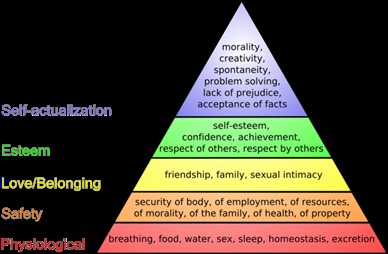Let’s Talk About Sex

Growing up, I was taught there were three things one didn’t discuss in polite company: sex, religion and politics. Religion and politics can lead to heated arguments – just look at several countries around the world at the moment with very volatile political environments. As a respite from the politics, let’s talk about sex, baby.
Edit October 24, 2016: Judging by the comments below, it seems I may did have made clear my main argument, so I’ll be blunt. I’m hypothesising lack of sexual compatibility can result in love dying in a relationship. Lack of compatibility can be the result of lack of knowledge, lack of skill, lack of similar desires/needs and the societal repression of female sexuality. I specifically avoided the use of the word “love” in order to retain focus. There is no question that love + sex can and should be, well, mind-blowing!
My focus is the social repression of female sexuality and the lack of training/skill development generally. Sometimes I read articles that make my blood boil. I read one such article yesterday. Apparently, in 2016, it is still OK to send completely different messages to our young people.
He spoke to the girls about sex — and how they shouldn’t have it — in a mandatory assembly, during the school day, attended by all 350 female students. But he spoke to the boys about “dating tips” in a voluntary, after-school assembly attended by only 25 male students.
….
In response to a question, Henning explained that guys are sexual so the species won’t die out, while girls have a low sex drive so the planet will not get overpopulated.
Let’s look at some of our society’s “standards”. Young men are encouraged to “sow their wild oats” but girls are to be virgins when they walk down the aisle. A male fellow student of mine, a father in his mid-thirties, has completely different ideas about the allowable dating lives of his sons and daughters. Years ago my son ranted and raved at me for allowing my daughter’s boyfriend to stay over. “But”, I countered, “you are sleeping with your girlfriend!” His response? “That’s different.” How? That girlfriend was someone’s daughter! How did he develop that double standard? From society. Both son and daughter were adults by this stage.
Who, exactly, are these young men supposed to sowing their wild oats with? Each other? Because us women are all so busy protecting our virginity, after all – or at least not bedding too many partners….. We have sex education in some societies and some schools, but even then it focuses on the mechanics of how the male and female bodies work. I distinctly remember my own daughter coming home from school after sex education at about age seven or eight. The conversation went like this.
M: “Mum, we had sex ed today”.
Me: ” That’s good, dear.”
M: “Yes, but I’m confused.”
Me: “Why?”
M: “Well, we learnt the sperm comes from the man and the egg from the woman and together that makes a baby, but they didn’t tell us how the sperm and the egg meet.”
On the basis if a child is old enough to ask a question, they are old enough for an answer, I proceeded to explain, in the simplest terms I could, how the sperm and the egg meet. Her reaction? “Oh, Mum, that’s disgusting, they pee with that!” As she is now 37 and very happily married, I guess she has moved past her initial horror. I did explain the function of the prostate to her at the time! (Conversation shared with permission)
About 20 years prior I had also had sex ed at school. Not much had changed, I thought.
At no point in time do we instruct our young people how to have a good sexual relationship, how to make love well, how to enjoy sex. No, we are still too busy encouraging young men to sow their wild oats and women to refrain from being sluts. Not as blatantly as in the 1950s perhaps, but generally that undercurrent is still there, loud and clear. It is OK for males to enjoy sex, but not women. Yet we have no hesitation in draping scantily clad women over anything and everything to sell “stuff” – more mixed messages. An amusing look at that cultural proclivity can be found at The Huffington Post, “If Men Posed Like Motorcycle Babes”.
Many readers will be familiar with Maslow’s Hierarchy of Needs

We teach our children how to cook, we toilet train them, we teach them to get enough sleep and drink enough water. Breathing and homeostasis really take care of themselves. But sex, the other basic physiological need? No, we ignore that. Heaven forbid we should actually provide any guidance to our young people on one of the most important aspects of their adult life.
Not only that, but society is effectively still repressing female sexuality. We still have double standards, we still have a culture that will blame rape victims for the way they dressed or because they were drunk which effectively is nothing more than excusing the rapist and buying into the very rubbish the lecturer cited above spouted: women have a low sex drive and men have a high sex drive. How about society considers some people have a low sex drive and some people have a high sex drive irrespective of gender. I can think of examples of all four situations I have known during my life.
I applaud the efforts to eradicate the rape culture we still seem to be saddled with and the efforts to hold rapists accountable for their actions irrespective of a woman’s dress. What I don’t see is society teaching young people how to be good lovers. Many young men get much of their “guidance” from porn movies, much more readily available today than pre-internet. Maybe they’d be better having a decent conversation with their father. Some do, but many don’t.
”In my private practice I had a 16-year-old girl who came in and said her 18-year-old boyfriend told her her vagina didn’t look like the images he saw on the internet.
Source: The Age
That’s a great start to a sexual relationship, don’t you think? That is an interesting article worth reading in full, even though a few years old now.
Teenagers are always usually highly embarrassed if their parents try to talk about sex, but isn’t that society’s fault? If we treated sex no differently to teaching young people how to cook or eat a balanced diet or get enough sleep, perhaps our young people would be better equipped to enter the adult world and find sexually compatible partners.
It has long been cited that when relationships start to breakdown, the sex stops. While I am not a psychologist, I’ve often wondered what comes first here, the chicken or the egg? Is it always the case other relationship dynamics fail first, or is it that the sexual compatibility isn’t there and that triggers other issues in the relationship? Could sex be the glue that may keep a relationship together? Remember, we are talking about a basic physiological need, according to Maslow. He didn’t publish gender specific hierarchies, however the following observation is noted:
Although Maslow (1970) did study self-actualized females, such as Eleanor Roosevelt and Mother Teresa, they comprised a small proportion of his sample. This makes it difficult to generalize his theory to females and individuals from lower social classes or different ethnicity. Thus questioning the population validity of Maslow’s findings.
Source: Simply Psychology
There are other aspects of Maslow’s theory open to question, outlined in the above article.
I am not the only one who has wondered.
Can sex kill a marriage? Absolutely. Problems in the bedroom can lead to deep dissatisfaction. A marital sex problem is like a canary in a coal mine — a warning alarm that danger lies ahead.
Source: The Huffington Post
One reason the author of the above article didn’t cite was simply lack of skill or sexual incompatibility (although Reason 6. comes close to the latter). Incompatibility can (not always) result from lack of skill, I suggest.
Think back to the very first time you had sex – did you really have any idea what you were doing, apart from the mechanics of the act? Feel free to share in the comments! We learnt as we went along. I may not recall the stats correctly but I have a recollection of reading, in my dim, dark, youthful past, that some 60% of women (at the time, it has improved) did not achieve orgasm. While it may be that some women are physiologically unable to reach orgasm, maybe with a little, oh, EDUCATION it might be possible for many more. Recently our modern imaging technologies have provided a much better understanding of the female clitoris. Bit bigger than many people think, huh?

Image source: Company handout.
The Guardian has a good article covering the details, “This is a 3D model of a clitoris – and the start of a sexual revolution“. The French will use this 3D model in sex education. Good. That’s a start.
There is a wealth of material out there to assist people, yet even so, many people don’t seek any guidance until after they’ve experienced a failed relationship or they blame other aspects for the relationship breakdown. Young people are unlikely to read a sex text book before they embark on a sexual relationship because we have created a society that finds such things embarrassing.
Individuals in a relationship can certainly learn from each other, but what if neither knows?
Incompatibility is a completely different issue. We are all different. Like different things, high, low, medium sex drive, morning versus night people, missionary versus the Kamasutra. Although certainly compromise is possible as in any aspect of life, if compromise has to be such that one person is no longer being fulfilled or enjoying the sex, this is likely to lead to relationship problems. If we didn’t send our young people out into the world with the belief that “it will be alright on the night” and everything will naturally fall into place, perhaps they could make more informed choices.
Sex requires energy. If the female in the relationship is working full-time, picking kids up from childcare, preparing dinner, doing the dishes, helping with homework and folding washing while the male catches up with the latest sport and news on TV, guess what? Said female is not going to have the energy for sex, irrespective of how much she may want it or need it or desire it. Suddenly it will become yet another task for the day and most likely just one task too many. None of us, male or female, have inexhaustible energy stores. It isn’t just the sexual skills we need in relationships, it is the knowledge around sex: ensuring the timing and environment is conducive is just one important aspect.
Imagine if we stopped treating sex as some great secret. Imagine if we actually treated sex as the normal part of life that it actually is, if we stopped preaching that females are somehow less sexual that males. Perhaps we could reduce the divorce rate. Perhaps we would eradicate or minimise the rape culture. Perhaps we would stop the victim blaming. Perhaps everyone could have a better sex life! The transition may take a generation or two, but surely it is time.
We won’t know unless we try.
Interestingly, some time after I published this article, I came across an article in The Guardian which discusses this very topic with an historical perspective. I found it very interesting: so might you! The Story of Sex: from Apes to Robots is a book written by a French academic.








